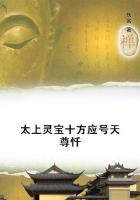1. Diana and Virbius
WHO does not know Turner's picture of the Golden Bough? The scene, suffused with the golden glow of imagination in which the divine mind of Turner steeped and transfigured even the fairest natural landscape, is a dream-like vision of the little woodland lake of Nemi Diana's Mirror, as it was called by the ancients. No one who has seen that calm water, lapped in a green hollow of the Alban hills, can ever forget it. The two characteristic Italian villages which slumber on its banks, and the equally Italian palace whose terraced gardens descend steeply to the lake, hardly break the stillness and even the solitariness of the scene. Diana herself might still linger by this lonely shore, still haunt these woodlands wild.
In antiquity this sylvan landscape was the scene of a strange and recurring tragedy. On the northern shore of the lake, right under the precipitous cliffs on which the modern village of Nemi is perched, stood the sacred grove and sanctuary of Diana Nemorensis, or Diana of the Wood. The lake and the grove were sometimes known as the lake and grove of Aricia. But the town of Aricia (the modern La Riccia) was situated about three miles off, at the foot of the Alban Mount, and separated by a steep descent from the lake, which lies in a small crater-like hollow on the mountain side. In this sacred grove there grew a certain tree round which at any time of the day, and probably far into the night, a grim figure might be seen to prowl. In his hand he carried a drawn sword, and he kept peering warily about him as if at every instant he expected to be set upon by an enemy. He was a priest and a murderer; and the man for whom he looked was sooner or later to murder him and hold the priesthood in his stead. Such was the rule of the sanctuary. A candidate for the priesthood could only succeed to office by slaying the priest, and having slain him, he retained office till he was himself slain by a stronger or a craftier.
The post which he held by this precarious tenure carried with it the title of king; but surely no crowned head ever lay uneasier, or was visited by more evil dreams, than his. For year in, year out, in summer and winter, in fair weather and in foul, he had to keep his lonely watch, and whenever he snatched a troubled slumber it was at the peril of his life. The least relaxation of his vigilance, the smallest abatement of his strength of limb or skill of fence, put him in jeopardy; grey hairs might seal his death-warrant. To gentle and pious pilgrims at the shrine the sight of him might well seem to darken the fair landscape, as when a cloud suddenly blots the sun on a bright day.
The dreamy blue of Italian skies, the dappled shade of summer woods, and the sparkle of waves in the sun, can have accorded but ill with that stern and sinister figure. Rather we picture to ourselves the scene as it may have been witnessed by a belated wayfarer on one of those wild autumn nights when the dead leaves are falling thick, and the winds seem to sing the dirge of the dying year. It is a sombre picture, set to melancholy musicthe background of forest showing black and jagged against a lowering and stormy sky, the sighing of the wind in the branches, the rustle of the withered leaves under foot, the lapping of the cold water on the shore, and in the foreground, pacing to and fro, now in twilight and now in gloom, a dark figure with a glitter of steel at the shoulder whenever the pale moon, riding clear of the cloud-rack, peers down at him through the matted boughs.
The strange rule of this priesthood has no parallel in classical antiquity, and cannot be explained from it. To find an explanation we must go farther afield. No one will probably deny that such a custom savours of a barbarous age, and, surviving into imperial times, stands out in striking isolation from the polished Italian society of the day, like a primaeval rock rising from a smooth-shaven lawn. It is the very rudeness and barbarity of the custom which allow us a hope of explaining it. For recent researches into the early history of man have revealed the essential similarity with which, under many superficial differences, the human mind has elaborated its first crude philosophy of life. Accordingly, if we can show that a barbarous custom, like that of the priesthood of Nemi, has existed elsewhere; if we can detect the motives which led to its institution; if we can prove that these motives have operated widely, perhaps universally, in human society, producing in varied circumstances a variety of institutions specifically different but generically alike; if we can show, lastly, that these very motives, with some of their derivative institutions, were actually at work in classical antiquity; then we may fairly infer that at a remoter age the same motives gave birth to the priesthood of Nemi. Such an inference, in default of direct evidence as to how the priesthood did actually arise, can never amount to demonstration. But it will be more or less probable according to the degree of completeness with which it fulfils the conditions I have indicated. The object of this book is, by meeting these conditions, to offer a fairly probable explanation of the priesthood of Nemi.
I begin by setting forth the few facts and legends which have come down to us on the subject. According to one story the worship of Diana at Nemi was instituted by Orestes, who, after killing Thoas, King of the Tauric Chersonese (the Crimea), fled with his sister to Italy, bringing with him the image of the Tauric Diana hidden in a faggot of sticks. After his death his bones were transported from Aricia to Rome and buried in front of the temple of Saturn, on the Capitoline slope, beside the temple of Concord. The bloody ritual which legend ascribed to the Tauric Diana is familiar to classical readers; it is said that every stranger who landed on the shore was sacrificed on her altar.















